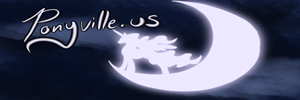>>12403I don't know. I haven't seen the movie in a while, so I can't make any specific references. But in regard to freedom, one might interpret it as being about Simba discovering what freedom is. If we use the songs as a guide to the themes of the movie, the movie opens with the song, "Circle of Life," as a sort-of naturalistic view of the world.
Next, we have Simba singing "I Just Can't Wait to Be King," which is about how a kid with the expectation of receiving absolute power some day might feel about it; Simba things everything is going to be perfect when he becomes king. Zazu, representing Simba's higher reason, flies around, futilely trying to guide him away from the notion.
After this, we hear Scar's song, "Be Prepared." Scar wants the same thing as Simba - to be able to do whatever he wants because he thinks it will make him happy. But whereas Simba's desire for power is born out of youthful innocence, Scar's is born out of anger.
Next up, in "Hakuna Matata," Simba's innocence having been broken, he stops wanting to be king. He meets Timon and Pumba, who teach him a different way. Simba learns that he doesn't need power to be happy.
"Can You Feel The Love Tonight" comes next, which is where Simba falls in love, and in so doing, is confronted with his past and who he really is.
Simba talks to the wise monkey, Rafiki, who then helps Simba connect the dots for himself, resulting in Simba understanding who he really is. At Pride Rock, we see the results of thinking that power can bring happiness - the land barren and desolate. Simba returns to Pride Rock and defeats Scar. Having experienced innocence, suffering, healing, love, and lastly, confrontation with his past, Simba is no longer under any delusion that power will bring him happiness or fulfillment; he is just himself, the king. Pride Rock then begins to be restored.
I would need to research the American Revolution more, but as a sort-of rough-draft outline for relating the two: This movie has become iconic, and we can figure out why by relating its themes to the American Revolution. "The Circle of Life" opening can be related to the ideal of freedom... We also see how thinking absolute power will bring happiness is naive, and how, even if attained, it only leads to increased suffering for a country's citizens, even when told otherwise. When Simba ran away from his home, this might be related to the early settlers running away from the country they were born in (for various reasons, probably). Just like Simba, the settlers experienced some extra freedom. As time went on, however, the rule of Britain became more oppressive until the settlers were confronted with their past. (In the movie, Nala was hunting far from the Pride Lands for food because there wasn't any left where she was at.) This might be similar to how King George was imposing his rule too much on the U.S. from abroad. "No taxation without representation" was the rallying cry from the settlers. Simba falls in love with Nala, and then we end up with Rafiki helping Simba to rediscover himself. This could be related to the settlers, due to the fact that most of them came to the U.S. so they could worship God how they pleased. Lastly, Simba claims his rightful place as king. And in the American Revolution, lastly, the citizens together claim their rightful ownership of their country.
>>12404Hm... I've never seen it, but I remember hearing about it a while ago. I didn't like the premise or that they used elements from the original movie to make it.
Wikipedia says about the premise, "The series centers on Kion, Simba and Nala's son and Kiara's younger brother who, as second-born to the throne, has been gifted with a power called the Roar of the Elders and becomes the leader of the Lion Guard, a team who protects the Pride Lands and defends the Circle of Life."
As the Circle of Life is something that continues whether it's defended or not, the whole premise seemed a bit silly. It was also made 20 years after the original movie, and I don't think it really had any of the original cast and crew working on it... so basically fanfic in modern terms.
